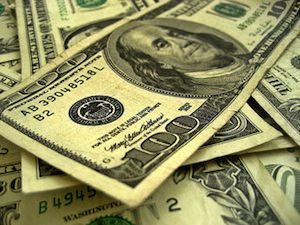Study: Tax Cuts for Rich Not Path to Economic Growth
Contrary to what conservatives have been pushing, reducing taxes for the wealthiest Americans will not grow the economy. However, according to a new study by the Congressional Research Service, it does help to create income inequality.
Contrary to what conservatives have been pushing, reducing taxes for the wealthiest Americans will not grow the economy. However, according to a new study by the Congressional Research Service, it does help to create income inequality.
According to the report:
Throughout the late-1940s and 1950s, the top marginal tax rate was typically above 90%; today it is 35%. Additionally, the top capital gains tax rate was 25% in the 1950s and 1960s, 35% in the 1970s; today it is 15%. The real GDP growth rate averaged 4.2% and real per capita GDP increased annually by 2.4% in the 1950s. In the 2000s, the average real GDP growth rate was 1.7% and real per capita GDP increased annually by less than 1%. There is not conclusive evidence, however, to substantiate a clear relationship between the 65-year steady reduction in the top tax rates and economic growth. Analysis of such data suggests the reduction in the top tax rates have had little association with saving, investment, or productivity growth. However, the top tax rate reductions appear to be associated with the increasing concentration of income at the top of the income distribution.
The study is important because, as Talking Points Memo noted, tax policy has become an important issue in the presidential election, with one candidate presenting a plan that would lead to taxes being cut and the other promoting one in which they would be raised for some people.
TPM:
The findings are pertinent to a central debate in the presidential election, wherein President Obama is pushing to end the Bush-era tax cuts on high incomes, while his Republican challenger Mitt Romney insists on cutting rates across the board 20 percent below current policy. Democrats contrast the tax hikes of the 1990s and ensuing economic growth with the tax cuts of the 2000s and relatively meager gains that followed. Republicans, meanwhile, argue that the recovery is weak because the economy remains shackled by regulatory and tax burdens.
The study delves into the last 65 years of U.S. tax policy pertaining to high earning Americans — including top marginal rates on income and capital gains taxes — and how it impacts their decision-making. The conclusion: cutting effective taxes on the rich doesn’t boost economic growth, but it does correlate with rising income inequality.
Still, it’s likely that the report will do little to quell the bickering between Republicans and Democrats over the issue.
— Posted by Tracy Bloom.
Your support matters…Independent journalism is under threat and overshadowed by heavily funded mainstream media.
You can help level the playing field. Become a member.
Your tax-deductible contribution keeps us digging beneath the headlines to give you thought-provoking, investigative reporting and analysis that unearths what's really happening- without compromise.
Give today to support our courageous, independent journalists.






You need to be a supporter to comment.
There are currently no responses to this article.
Be the first to respond.